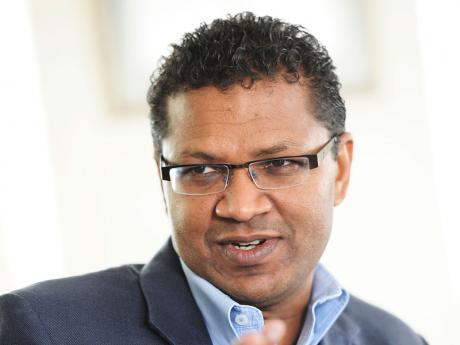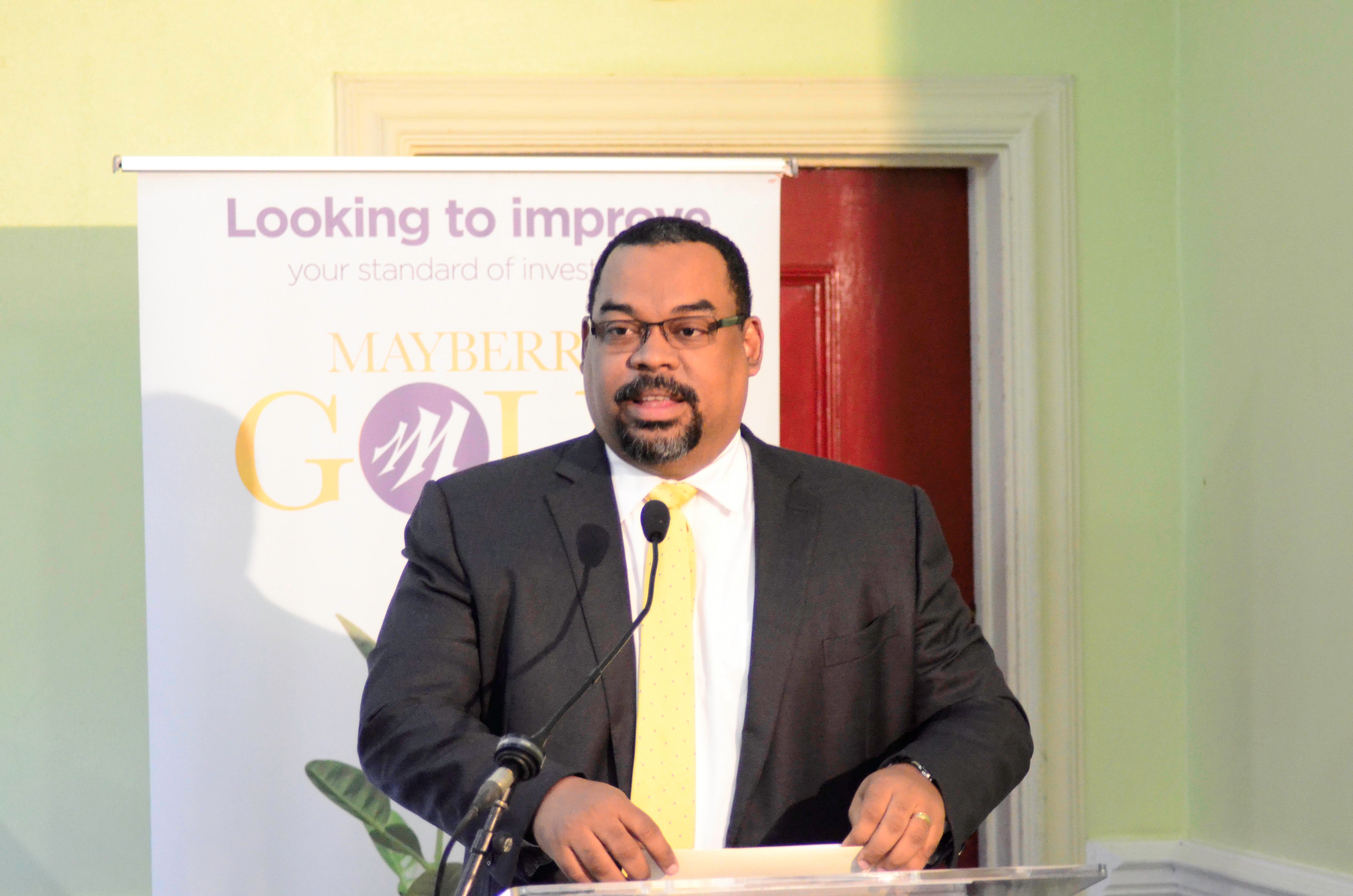The Caribbean Is Not Energy Poor
This brings me to my final proposition.
There has been a perception that Trinidad and Tobago is the only energy-rich country in the Caribbean.
However, ladies and gentlemen, today we now know that our other BMCs are definitely not energy poor. Guyana alone has enough renewable energy potential, mainly in the form of hydro-power to meet all of its electricity requirements for the foreseeable future; supply all of the needs of immediate neighbours, Grenada and Trinidad and Tobago; and still have enough left over to sell to neighbouring Brazil. The situation is similar for Suriname.
Additionally, Dominica, Grenada, Montserrat, St. Kitts and Nevis, St. Lucia, and St. Vincent and the Grenadines have great potential to generate their entire base-load electricity requirements from geo-thermal sources.
Although their domestic markets are quite small, technological advances in the development of undersea transmission cables would allow these countries to exploit their relatively large geo-thermal reserves for export to neighbouring countries.
Evolving renewable energy technology and recent price reductions can potentially bring about a transformation in the energy landscape to the extent that all BMCs can now harness their available resources.
For example, Jamaica can meet up to 30% of its electricity needs from renewable sources such as wind, solar, mini-hydro and waste-to-energy. According to a study by the Worldwatch Institute in the USA, Jamaica’s annual average solar insulation ranges from 5 to 8 kilowatt hours per square meter per day. In comparison, Germany, the global leader in solar photovoltaic (PV), has only a few locations with a capacity in excess of 3 kilowatt hours per square meter per day.
Jamaica’s situation is not unique. All BMCs boast similarly strong solar potential.
All of these renewable options have the potential to lower electricity costs, and increase foreign exchange reserves from reduced energy imports.
With our considerable potential to enhance regional energy security, save foreign exchange, improve the competitiveness of Caribbean economies; and with falling prices of renewables, including solar energy technologies, what prevents us from taking advantage of the opportunity to create a Shakespearian-type “sea-change” in the Caribbean’s energy landscape?
It is my view that the legislative and regulatory environment is a major hindrance to the pursuit of a new energy paradigm for our Region. There are two priority areas for urgent government action.
CARICOM energy ministers have already adopted “net-billing” as a feasible mechanism for “ensuring equitable pricing”
One, we need to change the legislative framework, at the national level, in order to facilitate access for renewables by altering the monopoly on generation where this exists in BMCs. Revisions in the framework should ensure equitable pricing for supply from independent power providers or small, distributed renewable generators of electricity.
It is noteworthy that CARICOM energy ministers have already adopted “net-billing” as a feasible mechanism for “ensuring equitable pricing”.
As a matter of urgency then, all BMCs should follow the lead set by Barbados and Jamaica, which have already enacted the supporting legislation.
Two, an appropriate regulatory framework needs to be established for each BMC to ensure that equitable tariffs and rules for optimal performance are in place and to make certain that the interests of consumers, investors and governments are balanced. Given the constraints of market size, and the availability and cost of specialised skills necessary for the effective administration of the regulatory function, it makes sense for a collective approach to be adopted.
It is for this reason that CDB welcomes the Eastern Caribbean Energy Regulatory Authority initiative; applauds those OECS countries that have already committed; and looks forward to the full participation by other member countries.
I would go so far as to say that such a supra-national regulatory body is critical for full and sustainable development of the geothermal potential in the sub-region, to encourage private investment in the sector, and to make interconnectivity a reality.
The building of a new energy paradigm must give priority to energy efficiency, which is relatively low-cost and yields a high return on investment with a short payback period.
A successful energy efficiency programme, incorporating appropriate tax incentives, would reduce household expenditure on electricity and other forms of energy, thereby increasing disposable incomes. Businesses, especially the critically important micro, small and medium sized-enterprises (MSMEs), would also see improvements in their efficiency and their competitiveness.
Our fight against high energy prices could, potentially, also open the door for the emergence and growth of new non-traditional businesses that promote the use of energy efficiency technologies and services to reduce energy consumption.
The growth of industries producing and/or installing solar water heating systems are the most familiar of the new industries that have emerged in our region as a response to high energy prices.
In the new energy paradigm, we should expect an expansion in new industries around a range of energy services, and the manufacture and installation of PV and other renewable energy systems and energy saving devices.
The new paradigm is integral to the “Green Economy” approach currently under consideration by some BMCs, and is consistent with the CDB’s Climate Resilience Strategy.
This morning, I have put three basic propositions on the table:
1. We have a competitiveness problem, which is responsible for our relatively low rates of economic growth;
2. The high price of electricity and our heavy reliance on imported fuels make us vulnerable and are the primary sources of our region’s uncompetitiveness; and
3. We can increase energy independence substantially; reduce the cost of energy; and create a whole new industry based on this new paradigm.
Role Of CDB
The inevitable question which you must be asking at this stage, ladies and gentlemen is, “What role does CDB play in helping the Region to address the competitiveness challenge and to make the transition to the new energy paradigm?”
Promoting poverty reduction through inclusive and environmentally sustainable growth and building resilience to external shocks and natural hazard events underpin all of CDB’s development financing and technical assistance to its BMCs.
Within that broad framework, the Bank has been intensifying its focus on renewable energy and energy efficiency.
Our flagship programme, the Basic Needs Trust Fund (BNTF), has been a useful mechanism for encouraging the use of renewable energy at the community level.
In Guyana, the largest beneficiary of this programme, we have used BNTF successfully to achieve this objective. With its extensive hinterland, its dispersed population, and the consequential challenge of electricity supply, Guyana is ideal for the continued roll-out of renewable energy solutions.
Over the last three years, the BNTF Project in Guyana has been including PV components, where relevant, in social infrastructure sub-projects. PV systems are often the solution of choice in remote areas where diesel is moved by river transport at relatively high cost.
Under BNTF 6, ten sub-projects, which included PV systems, have been completed, for a total installed capacity of 7.3 kilowatts. It is estimated that these 10 sub-projects have changed the lives of nearly 5,000 citizens.
I must share with you the story about the Kwatamang Village in Upper Essequibo, where there was no grid-connected electricity supply; and a couple of manual hand pumps provided the only access to water for residents.
CDB has been creatively using renewable energy solutions to improve the quality of life of the poor.
With the inclusion of only 700 watts of PV-installed capacity in the sub-project design for the operation of a submersible pump, 408 persons – 220 males and 188 females, comprising 65 youth – are now the proud beneficiaries of regular water supply!
We are replicating this work in the remaining nine BNTF beneficiary countries, where we have success stories similar to that of the Kwatamang Village.
Through the BNTF, therefore, CDB has been creatively using renewable energy solutions to improve the quality of life of the poor.
In the private sector, the Bank has also been working with MSMEs, mainly in the OECS countries, to improve their efficiency and their competitiveness.
Drawing on the expertise of the Caribbean Technological Consultancy Services Network, we have been assisting MSMEs with the conduct of energy audits, which will inform retrofitting for financing by CDB through local financial intermediaries.
The Bank has also implemented a USD1.5 million project through the OECS Secretariat to develop energy efficiency and energy awareness strategies and to support legislative reform in the Eastern Caribbean.
Organisationally, a Renewable Energy/ Energy Efficiency Unit has been created, among other things, to prepare a new Energy Sector Policy and Strategy for CDB; develop new financing instruments; and champion the Bank’s interventions in the area. This Unit will benefit from specialist expertise provided by the Government of Germany.
CDB has financed electricity generation, transmission and distribution facilities in its BMCs virtually since the Bank’s inception. We will continue to do so, including collaborating with development partners.
Many of the generating plants are obsolete and need to be replaced by a mix of technologies comprising renewables and natural gas.
It is estimated that as much as USD10 billion investment in new generation capacity could be required within the medium term if the region’s electric utilities are to benefit from efficiencies associated with the new technologies and for them to maintain adequate reliability. To radically transform the energy generation landscape, the investment requirements could exceed USD20 billion.
The majority of our BMCs are caught in a vortex of low growth and stagnant or declining living standards.
Conclusion
In closing, let me leave you with some final thoughts.
The majority of our BMCs are caught in a vortex of low growth and stagnant or declining living standards. In contrast, many of the SIDS are out-performing us; and the newly emerging countries of Africa, Asia, and South America are either catching us or rapidly leaving us behind.
We are very good at analysis; but we need to become excellent at praxis! We know what needs to be done; and we just need to do it!
The energy challenge is not a new one! We have known about it for at least 40 years, since the first oil shock in 1973. What is clearer today is that we do not need to continue as helpless victims of the vagaries of the international oil markets. Nor do we have to remain uncompetitive because electricity prices are like an albatross around our necks.
Our leaders of the 1930s – 1960s fought tirelessly for our political independence. As today’s leaders, we must move to secure all aspects of our nationhood; and one critical area is energy security.
We must take full responsibility and ownership by addressing decisively the competitiveness and energy handicaps which threaten us now. If they go unfixed, generations to come will be affected.
It is not an impossible dream for small states like ours to compete successfully on the international stage. If you believe that I indulge in tiresome hubris, I urge you to speak to Grenada’s Kirani James; to Kim Collins of St. Kitts and Nevis; to Hasely Crawford and Wendell Mottley of Trinidad and Tobago; and to Usain Bolt and Shelley-Anne Fraser-Pryce of Jamaica.
Indeed, speak to the vast number of Caribbean athletes, past and present, who have conquered the world of track and field by focusing on doing the things that make them world class!
The Caribbean has faced, and it has overcome many obstacles in the past. If we are to triumph over today’s competitiveness and energy challenges, we would do well to heed the counsel of Saint Francis of Assisi to “start by doing what’s necessary; then do what’s possible; and suddenly, we are doing the impossible!”
Mr. Chairman, I thank you!

Extracted from a presentation entitled “Unlocking Opportunities For Competitiveness And Growth The Role Of Energy” by Dr. Wm. Warren Smith President Caribbean Development Bank at the Forty-Fourth Annual Meeting of The Board of Governors Guyana May 28 and 29, 2014

 Businessuite News24 International2 years ago
Businessuite News24 International2 years ago
 Feedback & What You Think2 years ago
Feedback & What You Think2 years ago
 Marketing & Advertising2 years ago
Marketing & Advertising2 years ago
 Businessuite Women1 year ago
Businessuite Women1 year ago
 Businessuite 50 Power and Influence1 year ago
Businessuite 50 Power and Influence1 year ago
 Leadership Conversations1 year ago
Leadership Conversations1 year ago
 Businessuite Markets2 years ago
Businessuite Markets2 years ago
 RANKING2 years ago
RANKING2 years ago








